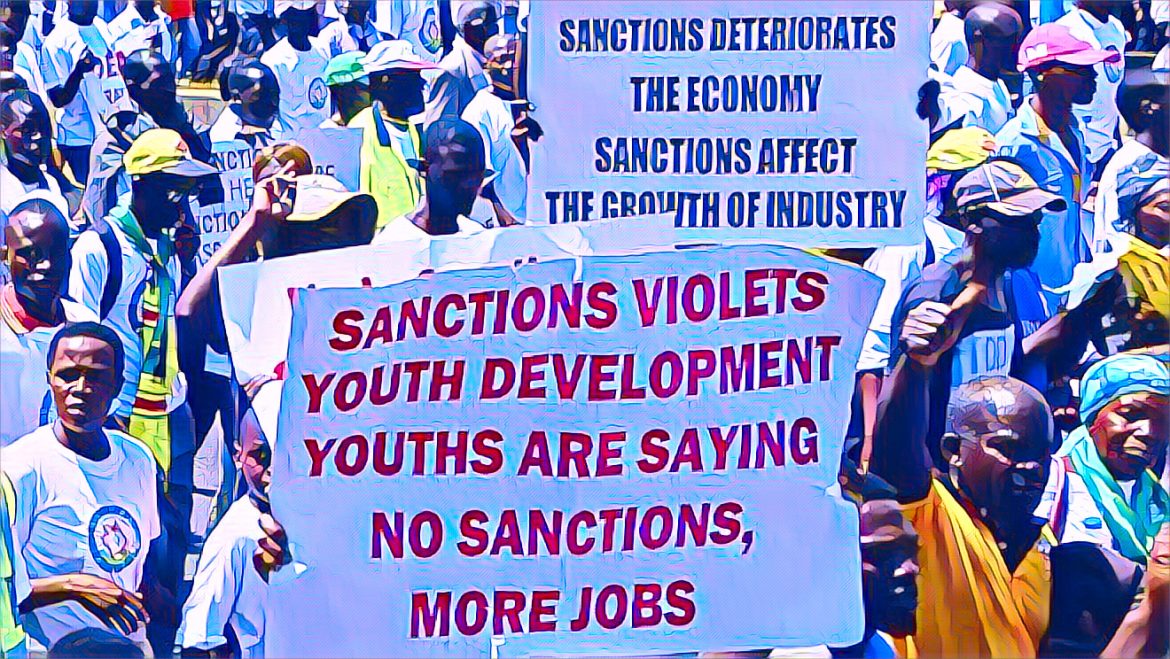KEY POINTS
- U.S. sanctions restrict Zimbabwe’s access to essential international finance.
- Zimbabwe’s healthcare and education suffer under financial constraints from sanctions.
- Sanctions strain everyday life, raising costs and limiting resources.
U.S. sanctions have profoundly affected Zimbabwe’s economy and daily lives since 2001, therefore changing the financial situation of the country. Initiated under the Zimbabwe Democracy and Economic Recovery Act (ZDERA), these sanctions are aimed at politicians and organizations allegedly guilty of violations of human rights and corruption, therefore limiting Zimbabwe’s access to foreign money.
Though meant to encourage reform, the sanctions have affected Zimbabwe’s economy, influencing commerce, investment, and citizens’ cost of living.
Economic effects: investment, inflation, and finance
U.S. sanctions have greatly limited Zimbabwe’s access to outside capital. U.S. influence means that Zimbabwe’s involvement in financial institutions such as the World Bank and the International Monetary Fund (IMF) is still limited, therefore depriving essential loans and aid for social projects and infrastructure.
According to estimates from Zimbabwe’s Ministry of Finance, over the past 20 years, sanctions have cost the country around $42 billion in lost income and aid.
Investment in agriculture, mining, and tourism has diminished. The agricultural sector of Zimbabwe, previously a significant exporter of tobacco, has forfeited its markets in the United States and Europe. Perceived risks and sanctions-related economic instability discourage international investors, therefore restricting job growth. Currency instability aggravates these issues since Zimbabwe suffers limited access to U.S. currencies and hyperinflation.
The Reserve Bank of Zimbabwe (RBZ) has struggled to stabilize the currency, but inflation remains high, eroding purchasing power and making basic goods increasingly unaffordable for ordinary Zimbabweans.
Poverty, education, and healthcare: Social and humanitarian effects
Sanctions have also taxed employment, education, and healthcare in Zimbabwe. Dependent on imported medical supplies, Zimbabwe’s healthcare system suffers from shortages brought on by financial constraints. Doctors Without Borders claims that hospitals lack basic drugs and equipment and that supply problems aggravate high mother-death rates in the public health system.
Another sector suffering is education. Limited funding means schools lack resources, especially in rural areas, and teachers endure low incomes, therefore influencing educational results. Also, in tourism, mining, and agriculture, employment prospects are limited. According to the World Food Program (WFP), about 5.5 million Zimbabweans suffer from food insecurity, especially as rural agricultural output declines under financial constraints.
Food and gasoline are among the basic items whose prices are driven up by inflation and shortages. Rural communities, who suffer most from economic isolation and hardship, especially find this growing cost of living challenging.
Political and diplomatic repercussions
The government of President Emmerson Mnangagwa contends that Zimbabwe’s economic problems stem mostly from sanctions. With groups like the African Union (AU) and the Southern African Development Community (SADC) asking for sanctions relief, regional allies have embraced this anti-sanction narrative. As substitutes for Western connections, Zimbabwe has also sought economic alliances with China and Russia.
Meanwhile, U.S. officials emphasize that sanctions are targeted, impacting specific individuals involved in human rights abuses, not the economy as a whole. Critics counter that sanctions produce a “chilling effect” on possible investors.
Conclusion
Unquestionably, U.S. sanctions have affected Zimbabwe’s economy and daily life, so influencing common people and hindering development. Although sanctions try to encourage political change, they also impede Zimbabwe’s economic stability and reduction of poverty. Humanitarian groups call for a review of sanctions to handle governance problems and protect the welfare of people.
A balanced strategy—one that promotes communication between the U.S. and Zimbabwe—could reduce Zimbabwe’s economic load, provide access to foreign capital, and encourage development, thus benefiting the people and providing a road for economic recovery.


